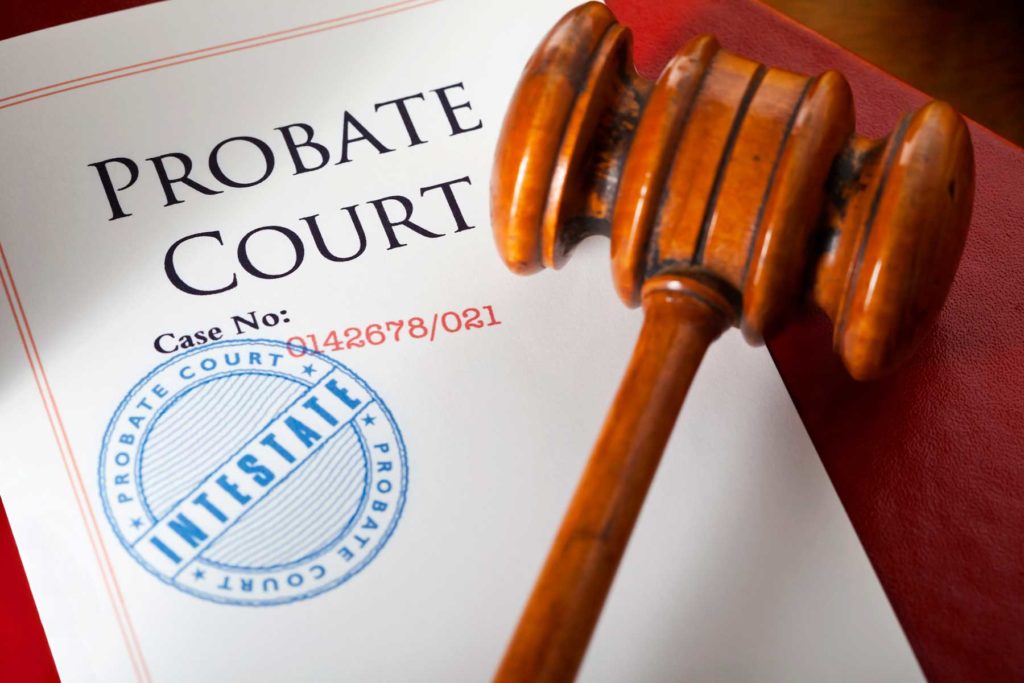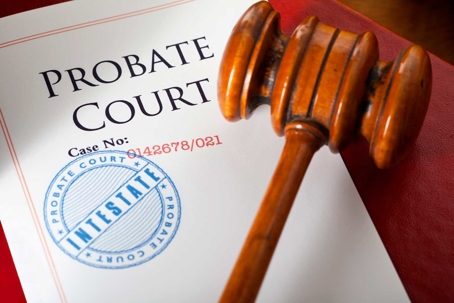An Overview of the Probate Process and What you need to know

Probate proceedings can be time-consuming, which is why families avoid undergoing the process at all. In a nutshell, probate is a court-supervised procedure where assets and obligations — including debts and taxes — are gathered and distributed to the heirs. If the proceedings go smoothly, and there are no adverse parties, probate involves mostly paperwork.
The issues arise when there are claimants or parties who are trying to contest the distribution of the deceased’s assets. This usually arises when there is little to no estate planning on the part of the deceased during their lifetime. There are ways to avoid going through it with the assistance of a trusted lawyer.
Read on to learn more about the probate process and how it is decided in court.
What Happens in the Probate Process
Probate proceedings consist of several stages. Before anything else, it’s important to note that the estate of the deceased shall be distributed according to their written will, given that the latter is proven valid. However, if the deceased is intestate or without a will, the estate shall be distributed in accordance with the state laws of intestate succession.
Petition to Probate
The process commences upon the filing of a “Petition for Probate” with a probate court. This shall be done in the country and locality where the decedent resides during their lifetime.
Oath-taking of the Personal Representative
A personal representative has the duty of distributing and handling the estate of the deceased. However, before they can perform these responsibilities, they must swear under oath before the court that they will distribute such assets in compliance with the laws of the state.
An executor is a personal representative appointed under the decedent’s will and duly empowered by “Letters Testamentary.” Meanwhile, personal representatives appointed by the court are called administrators, and their authority shall come from “Letters of Administration.”
Public Notice to Interested Parties
Before an estate is distributed accordingly, parties who could be legitimately interested in the estate are given public notice to make a timely claim before the court. Creditors may be informed through newspapers, depending on the laws of that particular state. If there is no will, individual notice may be delivered to possible heirs of the estate.
Determining the Value of the Estate
In the interest of due process, no estate shall be distributed without proper inventory and appraisal. This is one of the most time-consuming stages in the probate process. The personal representative will start organizing all the assets if this was not completed before the death of the decedent.
After the gathering of the assets and the necessary publication, the personal representative will then file an inventory with the court. This must be accomplished within a given timeframe imposed by law. Once the personal representative gets the approval of the court, they will furnish a copy of the inventory to the creditors and other claimants.
Since this inventory is considered a public record, anyone who has adverse claims against the asset may inform the personal representative.
Payment of Taxes and Debts
In fulfilling the obligations of the deceased before their death, the state shall go after the estate. This includes federal and state-level estate taxes. This is done before the actual distribution of the estate.
Distribution of the Remaining Assets
Once all of the decedent’s taxes and debts have been paid, what remains of the estate can be distributed to the heirs. Remember that the distribution can be made according to the decedent’s will or the laws of intestate succession — depending on the circumstances.
Costs of Probate
There are several expenses associated with probate proceedings. Some of them may include court oversight fees, attorney’s fees, personal representative fees, and other fees as the court may deem reasonable. These fees can be hourly or fixed, according to the discretion of the court.
This is one of the reasons why families of the deceased tend to avoid probate. The best remedy to avoid it is estate planning.
Estate Planning With a Lawyer
You might be wondering whether you can DIY your estate planning without the assistance of a lawyer. Know that estate planning involves numerous legal intricacies that lawyers have studied for several years. It’s in your best interest to hire a reputable attorney to assist you with your estate planning. Your family can avoid lengthy and expensive probate proceedings with adequate planning on your part.
It’s also best to start early to map out all the possibilities and include the heirs in your will. You’d want your loved ones to receive your estate without any legal issues in the future.
Our attorneys have years of experience handling estate planning. Ensure your affairs are in order by contacting us, or call our experts at (443) 665-8030. With offices in Baltimore, Columbia, Towson, Northern Virginia, Westminster, and Dundalk, we’re here to help you with any questions you may have.
The post An Overview of the Probate Process and What you need to know appeared first on Albers and Associates.
